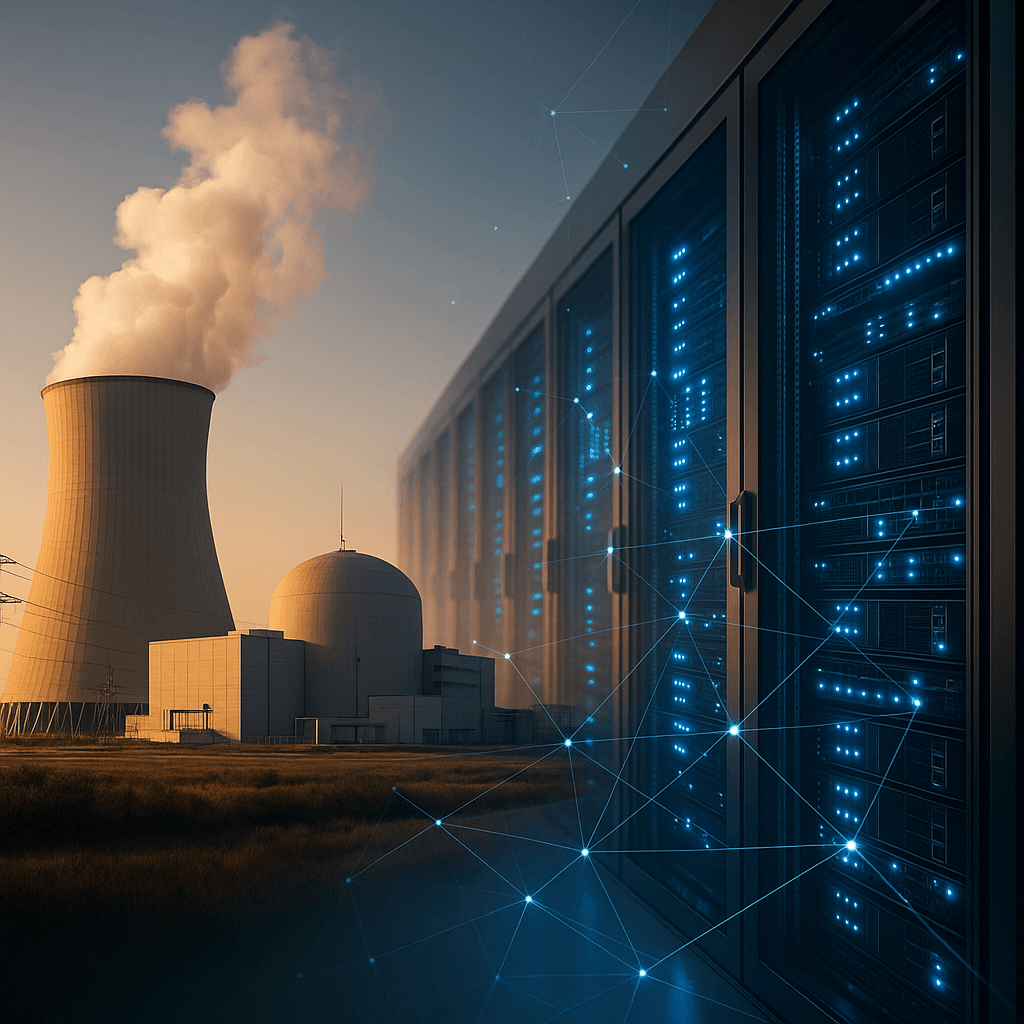The Trump administration just handed Constellation Energy a $1 billion federal loan to restart Three Mile Island's Unit 1 reactor - a move that directly powers Microsoft's massive AI data center expansion. The deal marks the first major nuclear restart in recent U.S. history, with Microsoft locked into a 20-year power purchase agreement worth an estimated $2.3 billion.
The Trump administration just made nuclear power cool again. Constellation Energy scored a massive $1 billion federal loan Tuesday to resurrect Three Mile Island's Unit 1 reactor, directly feeding Microsoft's exploding AI infrastructure needs. The deal represents the largest government bet on nuclear restart technology in decades, and it's sending shockwaves through the entire energy sector. Microsoft announced last year it would purchase all 835 megawatts from the facility for two decades, essentially bankrolling the entire $1.6 billion refurbishment project. The tech giant's commitment transforms what seemed like an impossible economics equation into a viable business model. According to Jefferies analysts, Microsoft's paying roughly $110 to $115 per megawatt-hour - a hefty premium over wind and solar, but crucial for guaranteed 24/7 baseload power that AI data centers desperately need. The reactor being revived isn't the infamous Unit 2 that melted down in 1979. Unit 1 operated safely from 1974 until 2019, when cheap natural gas made it economically unviable. Now, with AI workloads consuming exponentially more power, that calculus has completely flipped. Constellation expects the refurbishment to wrap by 2028, making it the first major nuclear restart in recent U.S. history. The Department of Energy's Loan Programs Office is providing the debt facility through its newly rebranded Energy Dominance Financing Program - formerly the Energy Infrastructure Reinvestment program under Biden. The LPO has actually proven surprisingly successful despite the Solyndra debacle, maintaining just a 3.3% default rate after recoveries. Tesla famously received $465 million from the program in 2010 and repaid it early by 2013. This isn't Microsoft's first nuclear rodeo. The company's been aggressively pursuing clean baseload power as its Azure cloud services and AI models demand massive amounts of consistent electricity. Unlike renewable sources that fluctuate with weather, nuclear provides the rock-steady power profile that data centers require. The move puts ahead of competitors like , which signed its own nuclear deal with this summer for clean energy attributes from a 1.1 gigawatt Illinois plant. But Microsoft's approach is more direct - it's essentially paying to bring an entire reactor back online exclusively for its use. The economics are fascinating. While Microsoft's paying a premium compared to renewables, shows it's still cheaper than building new nuclear capacity. Even renewable projects with battery storage for 24/7 operation cost less, but they can't match nuclear's reliability and consistent output profile. Industry experts see this as a potential template for reviving America's dormant nuclear fleet. Dozens of reactors shut down over the past decade due to economic pressures could theoretically follow the same path if tech companies commit to long-term power purchase agreements. The timing aligns perfectly with the Trump administration's energy dominance agenda and growing bipartisan support for nuclear power as a climate solution. The loan facility represents one of the first major energy infrastructure moves under the new administration, signaling continued federal support for nuclear technology despite political transitions. Last month, the LPO also finalized a to American Electric Power for transmission line upgrades, showing the program's broader infrastructure focus.
